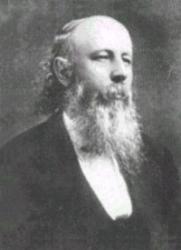WOMENS diseases constitute a large majority of our cases. For, at least half of the community are women; and what with the enforced illnesses contingent on maternity; upon evolution and involution, which are often attended with serious diseases; because or our modes of living, which bear so hardly upon women; upon the unequal struggle which, as yet, women are forced to maintain, who wage alone the hard battle of life-this half of the community, as the records of all of us must show, call for professional aid at least twice as often as the other. And yet, in reference to their peculiar diseases, our Materia Medica is weakest.
The reason and the remedy are not far to seek.
We have comparatively few symptoms of drug-action upon women, because comparatively few women have been provers of drugs. And the symptoms we have are lacking in precision, because our women- provers, as a rule, have been deficient in definite knowledge of the structure and physiology of the organs distinctive of their sex, and have, therefore, been to some extent incompetent observers.
They have often better described the symptoms of the respiratory organs which they possess in common with men, than of their own characteristic sexual organs; a fact not surprising, perhaps, but certainly, from the standpoint of the Materia Medica, deplorable.
This want in our Materia Medica can be supplied only by the voluntary labours of women as provers of drugs. And that their provings may possess the requisite definiteness and precision, the provers must have acquired such a degree, at least, of professional knowledge as to understand the anatomy, physiology and relations of the apparatus peculiar to their sex.
In other words, they must be for this object, at least, and to this extent, physicians. More especially is this necessary as regards the symptoms produced upon the sexual apparatus of women, since, in the work of defining and comprehending these symptoms, at least, they can receive no aid from professional men. . . .” Science of Therapeutics. Dunham.
[Dr. Dunham, among others, had that wonderful proving of Lilium tigrinum made by “more than thirty women, most of them members of the profession”. He says “the drug had been introduced into the Materia Medica by Dr. W. E. Payne, who had communicated to us just enough to show that it had a powerful specific action upon the female organism”].


